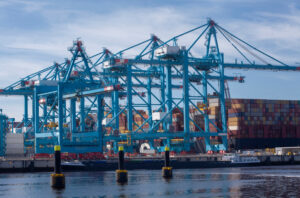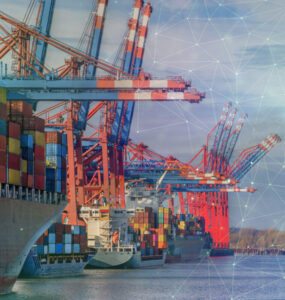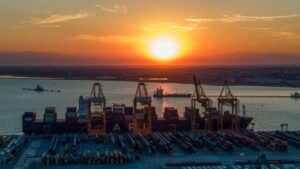New analysis from the International Marine Contractors Association (IMCA) on its industry vessel inspection programmes has revealed safety gaps.
In particular, the study revealed ongoing concerns around technical inspections, the controlled entry into confined spaces, cyber security, and defects to life-saving appliances.
The analysis include the Common Marine Inspection Document (eCMID) and the Common Marine Inspection Document for Small Workboats (eMISW).
The eCMID System Annual Report 2022/23 (M 262) analysed the 1,539 reports on vessel inspections undertaken and uploaded to the eCMID database between April 2022 and April 2023, finding common themes and areas of particular focus.
Of the 761 eCMID inspections, around 10 per cent did not have a technical inspection carried out by the vessel operator, 9 per cent did not have enclosed space entry adequately controlled, 13 per cent had no formal cyber security incident response process, and 7 per cent had defects recorded on their life-saving appliances.
In similar areas, of the 778 eMISW inspections for smaller vessels, 7 per cent had not addressed hazards within the machinery space, 6 per cent did not carry the required number/type of lifebuoys, and 6 per cent did not have a planned maintenance programme.
The IMCA eCMID system provides the marine and offshore industry with standardised formats for vessel inspection.
Offering a safety management system (SMS) ‘health check’, it improves the quality and consistency of inspections while reducing their frequency on individual vessels through the adoption of a commonly recognised process, according to IMCA.
As well as the detailed analysis of inspection findings – including the supplements by type of vessel – the reports also feature case studies from relevant IMCA Safety Flashes, as well as a review of the inspection report quality assurance process.
READ: Port of Gothenburg to electrify its inspection vessel
Mark Ford, Marine and Quality Manager at IMCA, said: “The high number of ISM non-conformances revealed in this analysis demonstrates very clearly why the eCMID and eMISW are credible and justifiable vessel inspection tools which allow us to identify, monitor, and drive down unsafe practices for vessel owners and operators which have the potential for accidents and safety incidents.
“This analysis will enable IMCA and its membership to focus efforts on reducing both the number of findings and highlighting areas where we can support by pointing to existing guidance or working with the industry to develop new standards.
“We also hope that the findings will ensure that independent Assured Vessel Inspectors (AVIs) can reduce inconsistency in reporting and will feed into training enhancements and system improvements,” Ford added.
Earlier this year, Maersk was announced as the winner of the Innovation in Safety Award at the awards ceremony in London for its APMT Vessel Inspection Mobile App.









